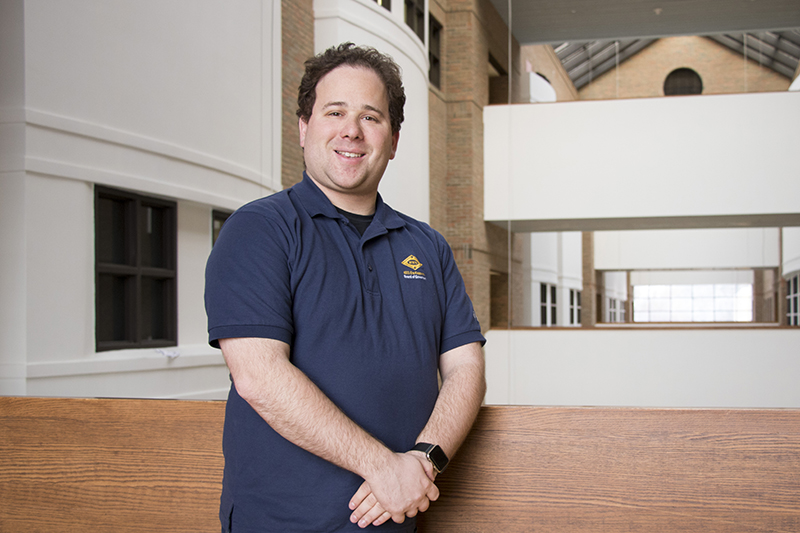PhD candidate Michael Benson wins another year leading honor society HKN
Michael Benson reelected as student governor for HKN, the national honor society for electrical and computer engineers.

 Enlarge
Enlarge
Michael Benson, a PhD candidate in Electrical and Computer Engineering, was reelected student governor for Eta Kappa Nu (HKN), the electrical and computer engineering honor society and the honor society of the IEEE.
As a student governor, Benson sits on the HKN Board of Governors where he helps to set the strategic direction of the society, ensures that the society’s funds are appropriately applied, and facilitates communication among student chapters and voices their interests to the board.
In his first year in the position, Benson started monthly chapter virtual meetings, where chapter leaders can discuss issues, events, and policies to help run their groups.
This year, Benson hopes to improve HKN’s brand recognition by rejoining the Association of College Honor Societies, which HKN left after its merger with IEEE in 2010.
Benson also continues his role as an advisor for Michigan’s chapter of HKN, Beta Epsilon. Beta Epsilon initiates between 30 and 40 new members each year, including undergraduate and graduate students, as well as faculty members.
HKN focuses on recognizing three characteristics: scholastic achievement, character, and a positive attitude. Michigan’s Beta Epsilon chapter works to meet these ideals through numerous community service activities, offering members professional development opportunities and holding social events for its members.
“Beta Epsilon performs thousands of hours of community service each year,” says Benson. “We teach coding, clean up the Arb, and help run science exhibits at the Hands-On Museum, as a few examples.”
The group also runs dB Café in the EECS Building, which Benson says should be reopening soon.
Benson himself will soon defend his PhD. His research covers multimodal remote sensing, and looks at the effects of wind on synthetic-aperture radar (SAR), which is a type of radar used to create two- or three-dimensional images and models of objects. He also works on modeling the three-dimensional structure of forests.
“There are a broad range of applications for this work,” Benson explains. “This includes understanding the global carbon cycle, planning development or logging, and managing conservation efforts and other land use.”
After his defense, Benson will begin work at Radiant Solutions, a unit of Maxar Technologies.

 MENU
MENU 
